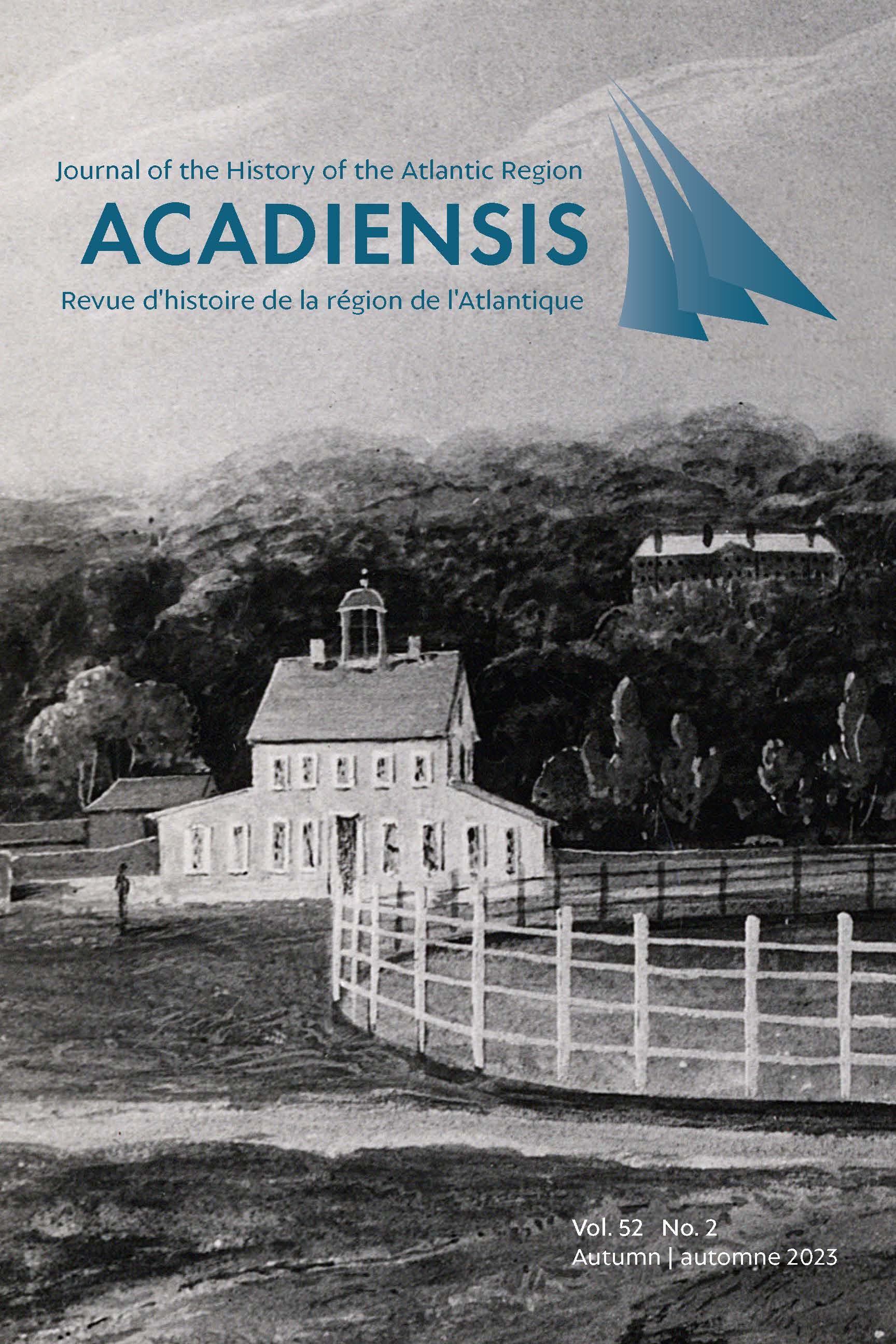Abstract
This article investigates the early history of the predecessor institutions of the University of New Brunswick – the Fredericton Academy and the College of New Brunswick – and considers how the development of collegiate education influenced that of the settler state. It argues that colonial elites who sought to build a school for their children not only did so on unceded Wolastoqey lands, but also supported and operated their school through the misappropriation of other funds and in opposition to established British law. The actions of the colony’s executive regarding the collegiate school built in Fredericton allowed the House of Assembly to gain greater political autonomy and power to help shape the province’s future.
Copyright for articles published in this journal is retained by the author(s), with Acadiensis being granted a non-exclusive licence to each and every right in the work throughout the world. After publication of the work, the author(s) shall have the right to self-archive the work and to reprint the work in whole or in part in books authored by or edited by the author(s) without the payment of any fee. In these other formats, however, the author or authors are required to acknowledge the original publication of the work in the pages of the journal. In the case of any requests to reprint the work, Acadiensis will require a standard permission fee -- to be divided equally between the journal and the author. In the event that such requests are received by the author(s), the author(s) shall direct such requests to the journal.

